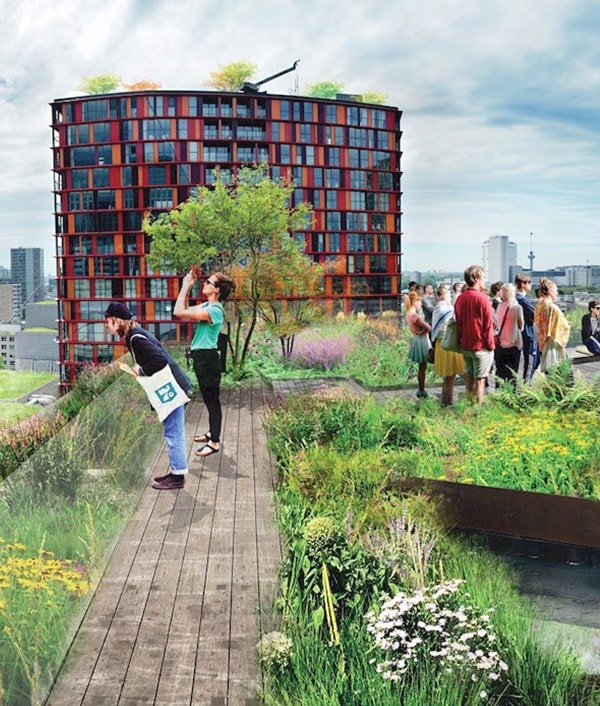Urban areas worldwide are grappling with the slow pace and challenge of implementing decarbonization pathways. In 2022, around 13% of UK households fuel poverty1 - one in every 10 people. Further, at COP28, we saw a consensus on the need to triple renewable energy generation by 2030. Policies like the European Green Deal and the Biden-Harris Administration announcement of $370 billion2 in clean energy funding over 10 years, are certainly helping propel annual clean energy investment. But the question stands, are we driving change fast enough?

In the face of increasing legislative constraints and resource limitations coupled with urban planning challenges, the urgency to promote energy efficiency and reliability, supported by a transition to low carbon energy sources has never been more pressing. At the Shortest Day Event held in London last year, Arcadis brought together industry thought leaders to discuss this common challenge, arriving at shared solutions in energy masterplanning to accelerate decarbonization of cities. Here, we explore the key takeaways to progress the agenda.

MINUTES
You have not accepted cookies yet
Five areas to drive positive progress in the road to decarbonization:
1. We need the community. Prioritizing local involvement in projects, like heat networks, not only helps establish a social license to operate which could help reduce costs, but also creates a sustainable path forward. The right level of knowledge and engagement can contribute to adoption of low carbon practices and choices in everyday decisions.
The City of Amsterdam’s ambition to eliminate use of natural gas by 2040 was one such example. Recognizing that reducing fossil fuel dependence would have an impact on various stakeholders, including municipalities, district heating, housing cooperations and residents to name a few, the city partnered with Arcadis on creating a Natural Gas Free Program. Amongst various levers, the program includes engagement with the people of Amsterdam, giving them meaningful ways to review and shape the transition plans as they progress, keeping in mind the impact on their lives.
2. Approaches must be tailored to local needs: There is no one-size-fits-all solution, and approaches must recognize the diverse sets of challenges faced by different urban areas, while tapping into the unique strengths of each city. This not only ensures the effectiveness of decarbonization initiatives but also fosters a sense of ownership within communities, promoting sustainable practices that resonate with a city’s specific characteristics and aspirations.
Arcadis contributed to London's carbon-free 2030 vision by helping Transport for London (TfL) establish an effective Electric Vehicle (EV) Charging Hub network. The approach integrated considerations for road efficiency, environmental impact, accessibility, and energy efficiency. With the help of our in-house inclusion team, features like step free access, proper lighting and accessible signage were put at the forefront of design. By focusing on tailored, inclusive design and strategic site selection, we were able to support TfL and London plan EV infrastructure that will improve lives and air quality for local communities.
3. Government regulation can provide incentives: Legislative gaps combined with the lack of compelling individual incentives pose obstacles to realizing renewable energy facilities. Urgent regulations guiding decisions on district heating and cooling networks can significantly impact a city’s decarbonization agenda. Beyond initial costs, long-term benefits of transitioning to low carbon sources, like increased biodiversity, enhanced air quality, and lower maintenance expenses can draw investment toward sustainable choices.
In Antwerp, where 90% of heating relied on fossil fuels, Arcadis collaborated with the city to develop a district heating network fueled by residual industrial heat. The innovative approach aims to cover 10% of Antwerp's heating needs by 2030, with plans for substantial citywide expansion by 2050.
Marnix van Rij, State Secretary of Taxation and Tax Authorities in the Netherlands shares, “Economic strategies at the ministry level are focused on supporting sustainable urban energy initiatives.” For example, EU legislation mandates municipalities with over 50,000 inhabitants to create a roadmap for decarbonizing heating and cooling3. But getting there isn’t as simple. Achieving these goals requires sharing best practices across borders. Leveraging our Dutch and Belgian expertise, Arcadis is consulting with European cities, extending these practices to expedite heating transitions in US cities.
4. Collaboration is key: Governments, businesses, and communities must work together for a successful energy transition. In Brazil, 19 municipalities united to construct the world's largest power transmission line, covering 2,539 kilometers. This transformative project influenced urban and rural planning through the development of Municipal Main Plans. Arcadis played a pivotal role, creating a nine-step methodology that included stakeholder surveys and parametric modeling, addressing diverse territorial and geographic challenges. Over 250,000 citizens reaped the benefits of resulting legislation, as city halls and communities collaborated to design integrated land use policies, enhancing overall quality of life.
And in the Netherlands, since the advent of the energy cap to curb the energy crisis, heat pump sales declined. The NVDE is collaborating with the Ministry of Economic Affairs and Climate, steering away from short-term solutions towards developing lasting structural alternatives for governments to implement.

5. Urban energy solutions can serve as the frontrunner in an integrated approach: From reducing heat stress by greening cities to capturing CO2, an integrated, systems thinking approach to decarbonization in cities helps address multiple challenges from climate change to livability of cities. Arcadis played a pivotal role in Rotterdam's 7 Square Endeavour project, where urban energy solutions serve as a frontrunner for an integrated, climate-resilient approach. With a goal of achieving 100% climate neutrality by 2030, the Municipality of Rotterdam was looking to revamp the area around Schouwburg Square. This unique initiative integrates sustainable roofs, smart grids, and innovative technologies, creating a blueprint for climate-neutral urban spaces, benefiting the local community with a more livable, green neighborhood.
Commitment, Conversation, Collaboration: Advancing decarbonization in cities

The clock is ticking – achieving a sustainable urban future by 2150 requires immediate action. The extended lead time from vision to decision-making and implementation intensifies the challenge at hand. It is crucial to recognize that integrating renewable and low carbon energy into urban infrastructures is not a luxury but a necessity.
Urban energy transition is a shared reality that calls for collaboration across ecosystem partners for innovative and practical solutions, like our partnership with Signify to accelerate the LED transition and reduce energy consumption in cities. What we want has never been done before, and with the right level of commitment, conversation and collaboration, the possibilities are endless.
Sources
1. UK Parliament
2. The Whitehouse (2023) Building a Clean Energy Economy [online] *Inflation-Reduction-Act-Guidebook.pdf (whitehouse.gov)
3. European Commission: Heating and Cooling







